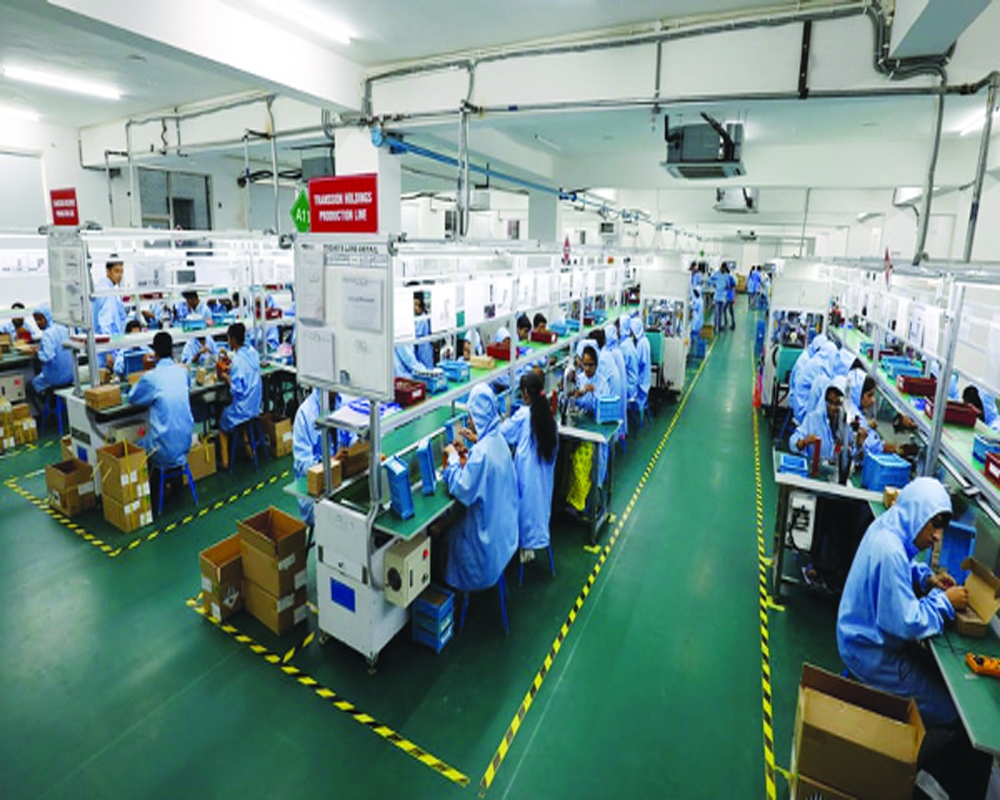Straightening out our manufacturing inefficiencies is the key to boost growth
The Covid-19 pandemic has created awareness of the vulnerabilities of supply chains and shortage in essential products not only in India but worldwide. This has led to renewed sense of economic nationalism with Governments pushing domestic companies to produce and employ more. The Union Government’s latest Rs 26,058 crore package to boost production of automobiles, auto parts and drones is part of the strategy to make India a manufacturing hub. Known as Production Linked Incentive (PLI) scheme, this an element of the much larger Atma Nirbhar Bharat initiative to make India self-reliant in key products across sectors that are critical and important for India’s future growth, by reducing its dependency on imports and developing globally as an export hub. Particularly designed to improve manufacturing capacities in both sunrise and strategic sectors, this scheme aims to reduce import bills, enhance cost competitiveness, and generate employment across skill categories. By achieving these objectives, India wants to expand the contribution of its manufacturing sector to the GDP, from 17 percent to 25 percent. The scheme also intends to encourage foreign investors who may want to inject capital into or establish business relationships with companies that have access to PLI incentives. As many as 13 sectors have been identified as intended beneficiaries of the PLI scheme. Taking the example of mobile manufacturing and electronic components industry, a total of 16 applications worth Rs 35,541 crore have been approved so far. Five of them were from the global champions category, another five companies were from the domestic champions category and the remaining six companies were from the electronic components category. These companies together invested approximately Rs 1,300 crores under this scheme in the first six months of operation inspite of tough times prevailing at the time, and added upto 22,000 jobs. This, in a way, fulfils the very reason for which the scheme was conceived.
Samsung, Foxconn, Hon Hai, Rising Star, Wistron and Pegatron are some of the global electronics giants who have started their operations under the scheme. As contract manufacturers for Apple iPhones, their presence will enhance the manufacturing base in India immensely. There are high expectations from domestic companies alike. After getting approval under PLI scheme, it is anticipated that Indian companies shall expand significantly by increasing their manufacturing operations and gain recognition as national champion companies in mobile phone production. There is an expectation that there would be high demand for mobile phones in future. This is evident from the latest mobile export figures of Rs 4,600 crore for the quarter ending April-June 2021. This was a growth of 250 per cent over the previous period. The imports also nose-dived by 80 percent to Rs 600 crore from Rs 3,200 crore. These figures would jump immensely when Pegatron commences production this year. In this context, the PLI scheme is anticipated to head to a production of approximately Rs 10.5 lakh crore with over 60 per cent of this to be exported. This scheme was extended from FY 2025 to FY 2026 at the request of the industry and allows applicants to pick FY 2022 as the base year. With the additional investment of Rs 11,000 crore, over the next five years, direct employment would increase by two lakh and indirect employment by three times. Overall, the PLI Scheme bodes well for the mobile phone industry. However, the same cannot be said about other industries like solar manufacturing. These schemes are at best short-term in nature and cannot be regarded as replacement for straightening out manufacturing inefficiencies and business complexity. Both the industry and the Government should work together during this time period to develop competitiveness and quality.
(The writer is Associate Professor at Amity University, Noida. The views expressed are personal.)


























